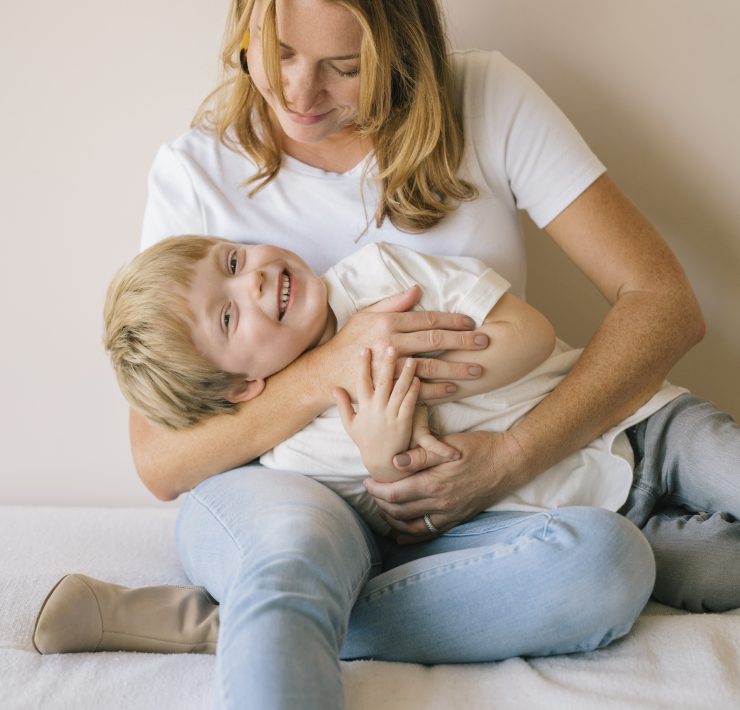"My heart hammered in my chest, as if I was still talking on the phone in the neighbor’s kitchen. Martha still didn’t know I’d called social services, but I was terrified she’d find out and beat me."
In honor of National Foster Care Month, we’re sharing an excerpt from Elizabeth Sutherland’s book, No Ordinary Liz: An Extraordinary Story of Life and Family. This passage from Sutherland’s harrowing memoir about surviving foster care and discovering her identity, takes place the morning after she placed a call to social services in the hopes of being rescued from her abusive home and the woman she believed to be her grandmother.
The sun was trying to peek through the short green floral curtains in between gusts of wind that waved them in and out. I lay in my bed and watched them for a long time, hoping and praying that today was the day.
My heart hammered in my chest, as if I was still talking on the phone in the neighbor’s kitchen. They had promised they would come for us, but that would only happen if I got up and pretended today was an ordinary day. Martha still didn’t know I’d called social services, but I was terrified she’d find out and beat me.
My siblings had no idea what would happen when we headed out with our gallon jugs in tow to find blackberries. But I knew, and it was a sweet secret I held tight in my chest.
While we pulled blackberries off the bushes on the side of that curvy mountain road, a maroon 1990 Ford Taurus passed us a couple of times. I didn’t think much about it. After a third lap around, the car stopped along the shoulder, wheels half on the grass and half on the hot pavement. The driver’s door opened and out stepped a woman in a dark navy pantsuit. We were on opposite sides of the road. Her eyes met mine and my breath caught. She yelled, “I’m Mary Davis with the Department of Social Services. Are you Elizabeth?”
I froze. I knew that the good Lord above had sent this kind lady to rescue my siblings and me. All I had to do was move. Cross the street. Say yes.
I nodded and she came to us. My siblings were confused, but we followed her across the road. She pulled out a brown clipboard with a fresh sheet of notebook paper tacked to the top. “I’m here to take you into foster care.”
I had no idea what foster care was or what was about to come, but I knew it had to be better than this horrible life we had been living. Holding hands, we all piled into the back seat. Then Mary drove us back to the trailer.
I was scared. What if Martha put up a fight again? What if Mary believed Martha, like the sheriff always did? We all hopped out of the car, following behind Mary like she was a mother goose and we were her goslings.
Martha stood in the kitchen, the Marlboro in her right hand dropping ash on the linoleum floor. “Who are you?” Anger flooded her face.
I don’t remember all the details of that day. I remember Mary introducing herself and saying she was here to take us. I remember Mary telling us to pack our bags while she argued with Martha.
And I remember running through the hallway with my arms full of the few shirts, shoes, and pants I owned, along with a single stuffed bear. I started to cry, not because I was sad to be leaving but because I was getting out of that abyss of pain and neglect. My siblings and I were leaving.
Finally.
I looked in the storage closet to find a bag, but all I saw was a pile of bright orange bags. They were sturdy and thick, the kind made for the State Department for prisoners to fill with trash and debris from the side of the road.
My belongings only filled the bottom of the bag. I did one final sweep of the trailer to make sure I wasn’t leaving any part of me behind and then I slung the bag over my shoulder. As I was about to open the front door to step towards my future, Martha groused, “Where do you think you’re going, young lady?”
I sat my orange trash bag on the stained tan carpet. “What are you talking about?”
“You’re not going anywhere. That woman can take your brother and sister, but you’re staying right here with me.”
I quaked at the sound of her voice. Then I suddenly realized everything had changed, so I let her words literally go in one ear and out the other. I picked up my trash bag, took one look at her and said, “The only people I’ve ever loved just walked out this front door. I’m going where they are.” And I walked out of that single-wide trailer for the last time.



